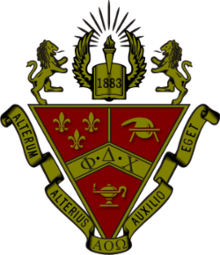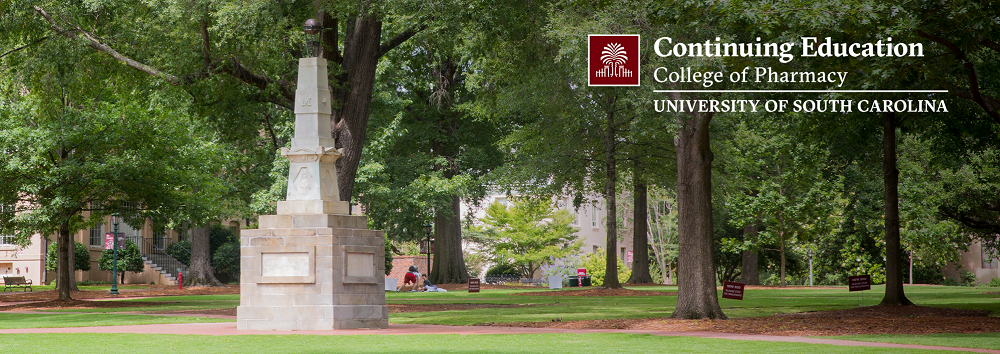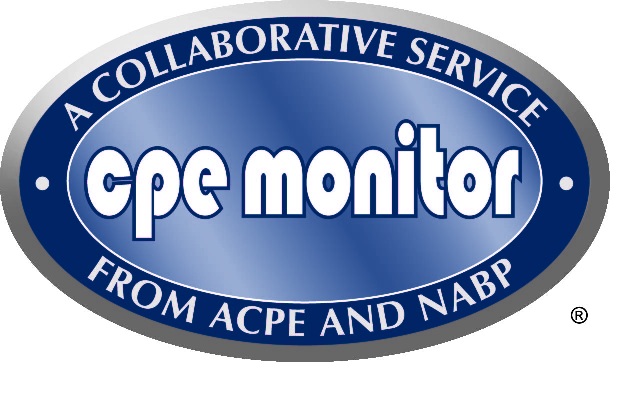
|
8:00 am-
9:00 am
|
Check In and Breakfast
|
|
9:00 am-
10:00 am
|
Medication Safety Pearls
Whitney Simerlein, PharmD; Clinical Pharmacy Specialist, Medical University of South Carolina, Charleston, SC
ACPE UAN 0062-9999-20-078-L05-P/T
(1.0 credit hours, 0.1 CEU; knowledge-based)
Learning Objectives:
At the completion of this activity, the pharmacist and pharmacy technician will be able to:
|
|
10:00 am-10:15 am
|
Break
|
|
10:15 am-
11:15 pm
|
Updates in anticoagulation: the Do’s and Don’ts of DOAC use
Emmeline Tran, PharmD, BCPS; Assistant Professor, Medical University of South Carolina; Charleston, SC
ACPE UAN 0062-9999-20-079-L01-P/T
(1.0 credit hours, 0.1 CEU; disease state management/drug therapy; application-based)
Learning Objectives:
At the conclusion of the program, the pharmacist will be able to:
At the completion of this activity, the pharmacy technician will be able to:
|
|
11:15 am -
12:15 pm
|
Use of MAT in the treatment of opioid use disorder
Samuel Schumann, MD, MSCR; Assistant Professor of Medicine, Medical University of South Carolina, Charleston, SC
ACPE UAN 0062-9999-20-076-L08-P/T
(1.0 credit hours, 0.1 CEU; knowledge-based)
Learning Objectives:
At the completion of this activity, the pharmacist and pharmacy technician will be able to:
|
|
12:15 pm-
1:00 pm
|
Lunch
|
|
1:00 pm-
3:00 pm
|
New Drug Update 2019-2020
C. Wayne Weart, Pharm.D., BCPS, FASHP, FAPhA; Professor, MUSC College of Pharmacy
ACPE UAN 0062-9999-20-080-L01-P/T
(2.0 credit hours, 0.2 CEU; knowledge-based)
Learning Objectives:
At the completion of this activity, the pharmacist and pharmacy technician will be able to:
|
|
3:00 pm-
3:15 pm
|
Break
|
|
3:15 pm-
4:15 pm
|
Health Literacy – What is it? Why does it matter? How is it measured?
Anthony DeClue, PharmD; Assistant Professor, Medical University of South Carolina, Charleston, SC
ACPE UAN 0062-9999-20-077-L04-P/T
(1.0 credit hours, 0.1 CEU; knowledge-based)
Learning Objectives:
At the completion of this activity, the pharmacist and pharmacy technician will be able to:
|
|
4:15 pm-
4:30 pm
|
Wrap Up and Accessing CE Documentation
|
Date: Mar 28, 2020 09:00 AM - 04:30 PM
CE Hours
CE Units
Activity Type
- Knowledge-Based and Application-Based
Target Audience(s)
- Pharmacists
- Pharmacy Technicians
Accreditation(s)

|
The University of South Carolina College of Pharmacy is accredited by the Accreditation Council for Pharmacy Education as a provider of continuing pharmacy education.
|
Co-Sponsor(s)
Requirements for CE Credit
- Determine the root cause of commonly seen errors in both outpatient and inpatient pharmacy settings
- Identify strategies for reducing patient harm with prescribing, storing, preparing, dispensing, and administering medications
- Recognize the benefits of a multidisciplinary approach to medication safety
Speaker(s)/Author(s)
|
Whitney Simerlein, PharmD, BCACP
|
Activity Number
0062-9999-20-078-L05-P/TCE Hours
- Recognize indications for direct oral anticoagulant (DOAC) therapy
- Identify safety concerns associated with the use and monitoring of anticoagulant therapy
- Evaluate patient-specific parameters when selecting anticoagulation regimens
- Recognize indications for direct oral anticoagulant (DOAC) therapy
- Identify drug-drug interactions associated with the use of anticoagulant therapy
- Classify clinical scenarios in which DOAC therapy may not be appropriate
Speaker(s)/Author(s)
|
Emmeline Tran, PharmD, BCPS
|
Activity Number
0062-9999-20-079-L01-P/TCE Hours
- Identify indications for initiation of medication assisted treatment
- Describe the options available for medication assisted treatment and characteristics which influence selection of a treatment option for a specific patient
- Outline current delivery methods for medication assisted treatment
Speaker(s)/Author(s)
|
Samuel Schumann, MD, MSCR
|
Activity Number
0062-9999-20-076-L08-P/TCE Hours
- Discuss guidelines for Type 2 diabetes, lipids, resistant hypertension, HFrEF, and asthma
- Describe current information concerning new FDA approved medications in the selection of evidence-based pharmacotherapy
Speaker(s)/Author(s)
|
C. Wayne Weart, PharmD, FASHP, FAPhA
|
Activity Number
0062-9999-20-080-L01-P/TCE Hours
- Describe health literacy, how it is different from plain literacy, and identify some major components and related topics
- Describe the clinical significance of health literacy as an indicator of health outcomes including potential health disparities
- Explain the progressive development of measuring and screening tools of health literacy
- Discuss some key current initiatives taking place in efforts to improve health literacy
Speaker(s)/Author(s)
|
Anthony DeClue, PharmD
|

